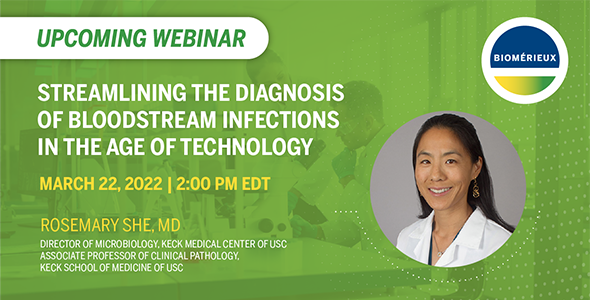By the bioMérieux Connection Editors
A blood culture is a standard diagnostic test for diagnosing bloodstream infections. In a blood culture, blood or a sterile body fluid sample is taken from the patient and inoculated into bottles containing culture media to determine whether infection-causing microorganisms are present in the patient’s bloodstream. The first commercial blood culture system was developed in 1915, though the blood culture bottles used then may look quite different than what laboratory professionals in the 21st century are accustomed to.

Over the decades since blood culture systems were first introduced, countless advancements have been made, making the process of detecting and diagnosing bloodstream infections faster and simpler for laboratory professionals. Now, blood culture systems are available with automated features that simplify blood culture bottle management, and some types of blood culture media are capable of neutralizing antimicrobials in the patient’s bloodstream. As one 2014 study published in the Journal of Clinical Microbiology observed, “One of the most important [limitations] involves the diagnostic performance of [blood cultures] collected from patients who are already on antimicrobial therapy. In up to 87% of patients with severe sepsis, empirical antimicrobial therapy is started before blood samples for cultures are drawn, and this practice can reduce or delay pathogen recovery.” Thus, it is critical to use blood culture media that is capable of neutralizing antimicrobials, to support optimal microorganism recovery.
In an upcoming webinar on March 22, Dr. Rosemary She of Keck Medical Center of USC will discuss the importance of blood cultures and epidemiologic trends in bloodstream infections as they relate to current diagnostic needs. Dr. She will also discuss how enhancements in blood culture systems – a far cry from those used in 1915 – can lead to improved laboratory workflow and support improved patient care. Dr. She’s presentation will highlight recent clinical studies that leverage both traditional diagnostic testing, as well as newer, rapid molecular diagnostics. This webinar on “Streamlining the Diagnosis of Bloodstream Infections in the Age of Technology” will provide learning opportunities for new and experienced laboratory and healthcare professionals.
Dr. Rosemary She is the Director of Microbiology at the Keck Medical Center of USC in Los Angeles. She is a pathologist subspecialized in medical microbiology, completing her pathology training at ARUP Laboratories/University of Utah Medical Center in 2008. She is currently Associate Professor of Clinical Pathology at the Keck School of Medicine of USC. As a pathologist specialized in medical microbiology, she has devoted her career at USC to the development of the diagnostic capabilities at Keck for infectious diseases. Her research interests include analyzing the clinical impact of new rapid molecular diagnostic methods and using novel technologies for detection of human pathogens.
Opinions expressed in this article are not necessarily those of bioMérieux, Inc.



